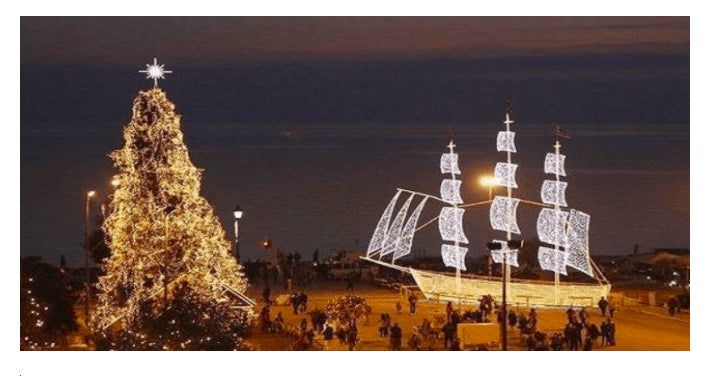We have many Christmas Traditions in common with the Greeks, but there are some fascinating differences

1 The Tradition of Decorating the Christmas Boat
Long before the Christmas Tree made an appearance, Greek Families were decorating Christmas Boats. Particularly in the islands and coastal communities, the decorated wooden boats would welcome husbands and sons back from the sea, safe and sound
2 Saint Basil (Agios Vassilis)
Father Christmas in Greece is not based on Saint Nicholas, but on Saint Basil. One of the 3 Hierarchs, Saint Basil the Great was known for caring for the ill, for building hospitals and giving to the poor. He became known as the Saint who gave gifts at Christmas - on the 1st of January - his Feast Day
3 The Greek Kalanda
These are the traditional carols sung by children, usually accompanied by a metal triangle and drum. As they sing from door to door they are treated with sweets, a little money, or even some olive oil!
4 Greek Christmas Food
Greek Christmas Food is made up of the country's famous local products such as oil, oranges, honey and nuts. The traditional Christmas dish is pork, and it is usually served as the first meat to break the advent fast. While Christmas food varies by region, you'll also find stuffed cabbage, mulled wine, honeyed raki and delicous sweet cookies. Kourabiedes are shortbread-like sugar-dusted almond cookies and Melomakarona. my favourite, moist, spiced walnut-topped honey cookies - see my blog with the recipe
5 Breaking a Pomegranate
For thousands of years, Pomegranates have been symbols of prosperity and fertility in Greece. At Christmas-time you will find them in many decorations, or hanging from house doors. On New Year's Eve the householder stands outside their front-door at midnight, and breaks a pomegranate, by throwing it down on the doorstep. The scattered seeds bring health and happiness to the family for the year ahead

